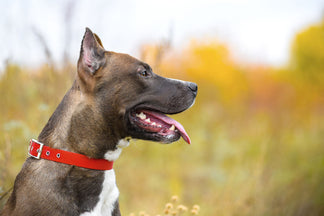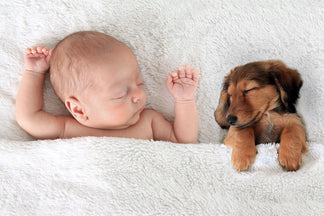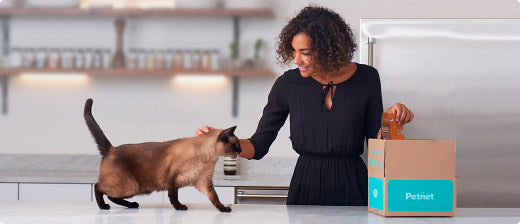What’s not to love about puppies? They are cute, cuddly, funny and full of energy. Their energy level is typically one of the most challenging behaviors for new dog owners. Puppies are like the energizer bunny, they go and go and go…and then crash for a quick nap and then they are up and at it again.
Smart owners channel that energy into productive outlets. Many owners learn that lesson the hard way because if you don’t channel it, your pup will find their own ways to channel it and it may be at the expense of your new running shoes, or the sofa pillows. Under-exercised dogs can be destructive, and this is particularly true for puppies because they have yet to learn good behavior from bad, so everything within reach is fair game.
Puppies exercise needs differ from adult dogs, so don’t think you can take them out for a 3-mile run or a 60-minute walk each morning and be set. A puppy’s growth plates are not fully formed until about 18 months and during that time strenuous or lengthy exercise could in fact be harmful to them.
Growth plates are the softer tissue found near the ends of their bones that calcify and form bone as they age. Because these plates are softer than bone, they can be injured more easily. You must be mindful of these limitations when seeking to exercise your puppy.
Here’s a few tips on effective and productive exercises for puppies (age 14 weeks – 1 year):
- Short duration walks or swims.
- Tug of War – remember they only have puppy teeth, so not too rough.
- Fetch – this game will serve them well for a lifetime, teach it early.
- Follow the Leader.
As your puppy ages, you can add more strenuous exercises to their routine:
- Extend duration of walks and swims and increase the speed.
- Obedience work, sit, stay, high five, rollover and other basic commands.
- Low jumps and other simple obstacles.
You should keep these exercise sessions to 10-20 minutes two or three times a day at first and build their endurance as they age. A good rule of thumb offered by The Kennel Club of the UK regarding how much exercise your pup needs is 5 minutes of exercise for every 1 month of age, so if your pup is 3 months old then 15 minutes of exercise is suitable, 4 months of age – 20 minutes of exercise, etc.
Remember, all dogs, even puppies need mental stimulation too, so “find-it” games or treat toys are very effective for puppies. And don’t neglect their socialization during this time. Puppy classes where they can interact with other pups and learn some basic commands are a great outlet both mentally and physically for your pup.
Once their growth plates close and your vet approves, probably at around 12-18 months, you can begin more consistent and longer walks, hikes, swims and even short runs on a flat surface and slowly build up their stamina and strength.
You will have to be the one to put the brakes on as puppies, like kids, think they are indestructible and will run hard and fast and jump and twist and tumble. Just keep in mind what we said about their growth plates and try to exercise them safely.
Sources:
http://vsoak.com/ww2/images/stories/pdf/Orthopedic%20Problems%20in%20the%20Immature%20Dog.pdf
http://slimdoggy.com/how-much-exercise-should-a-puppy-get-part-2/
https://www.akc.org/expert-advice/health/puppy-health/puppies-how-much-exercise/
https://www.thekennelclub.org.uk/getting-a-dog-or-puppy/general-advice-about-caring-for-your-new-puppy-or-dog/puppy-and-dog-walking/




 General
General
 General
General
 General
General
